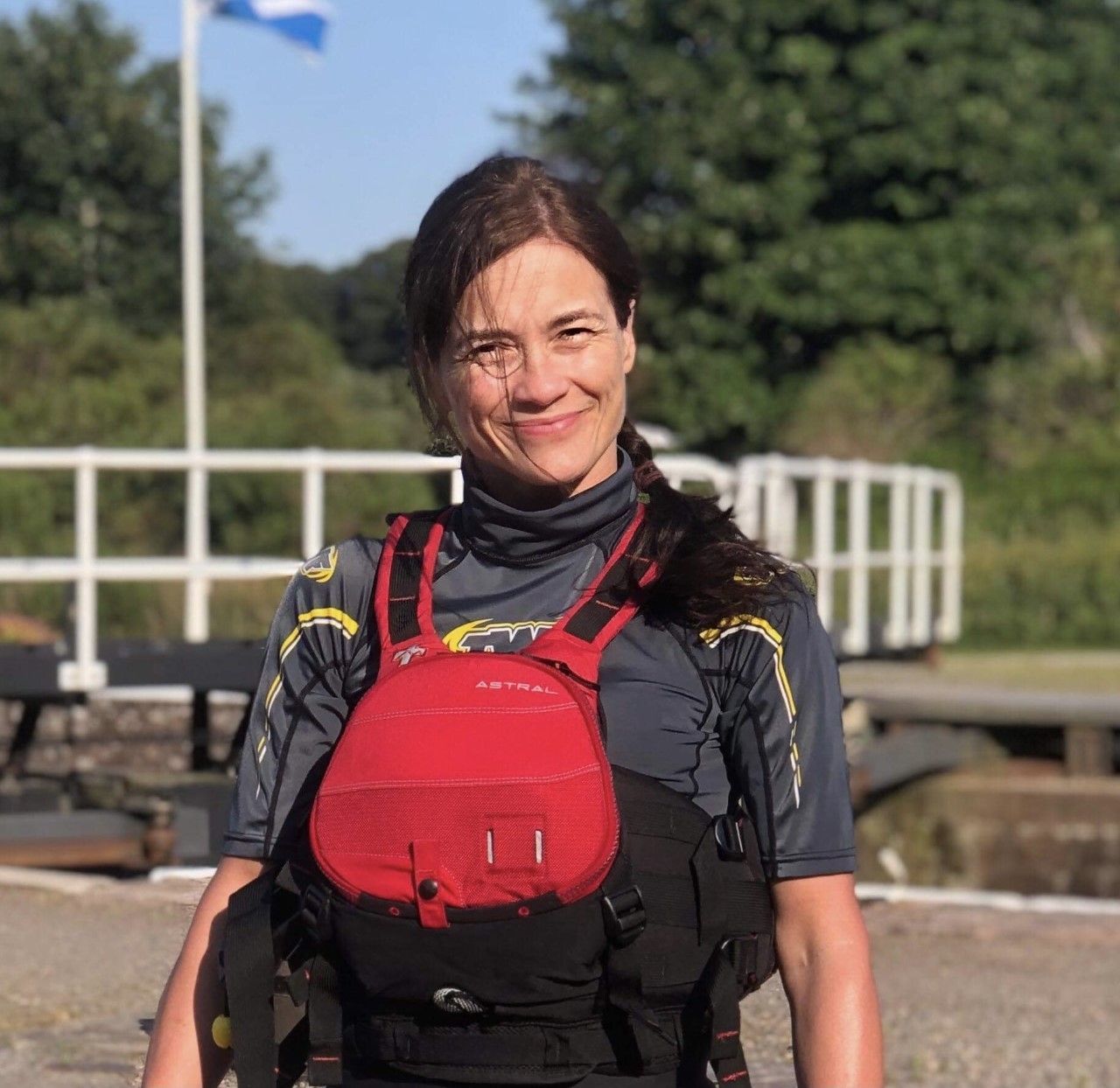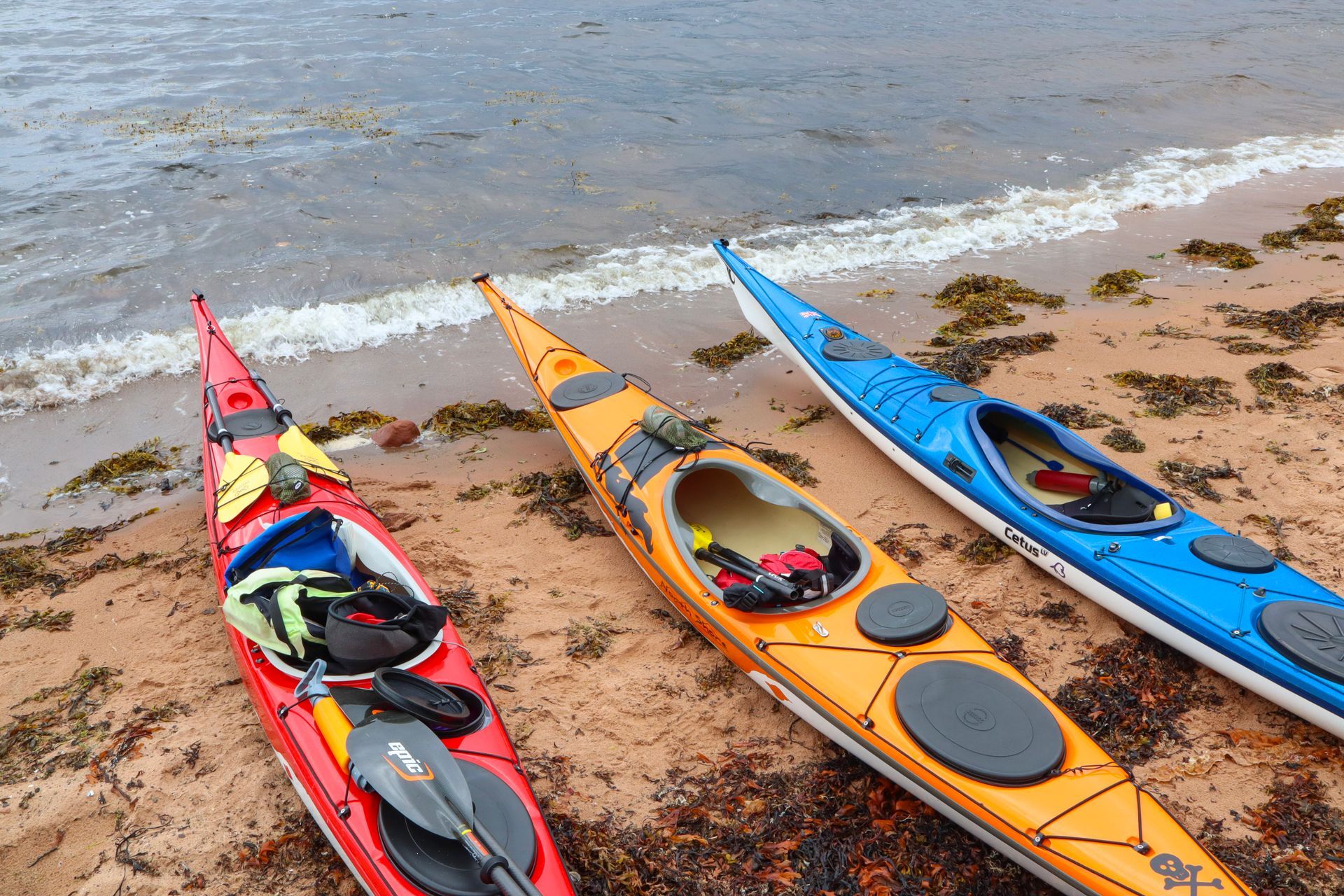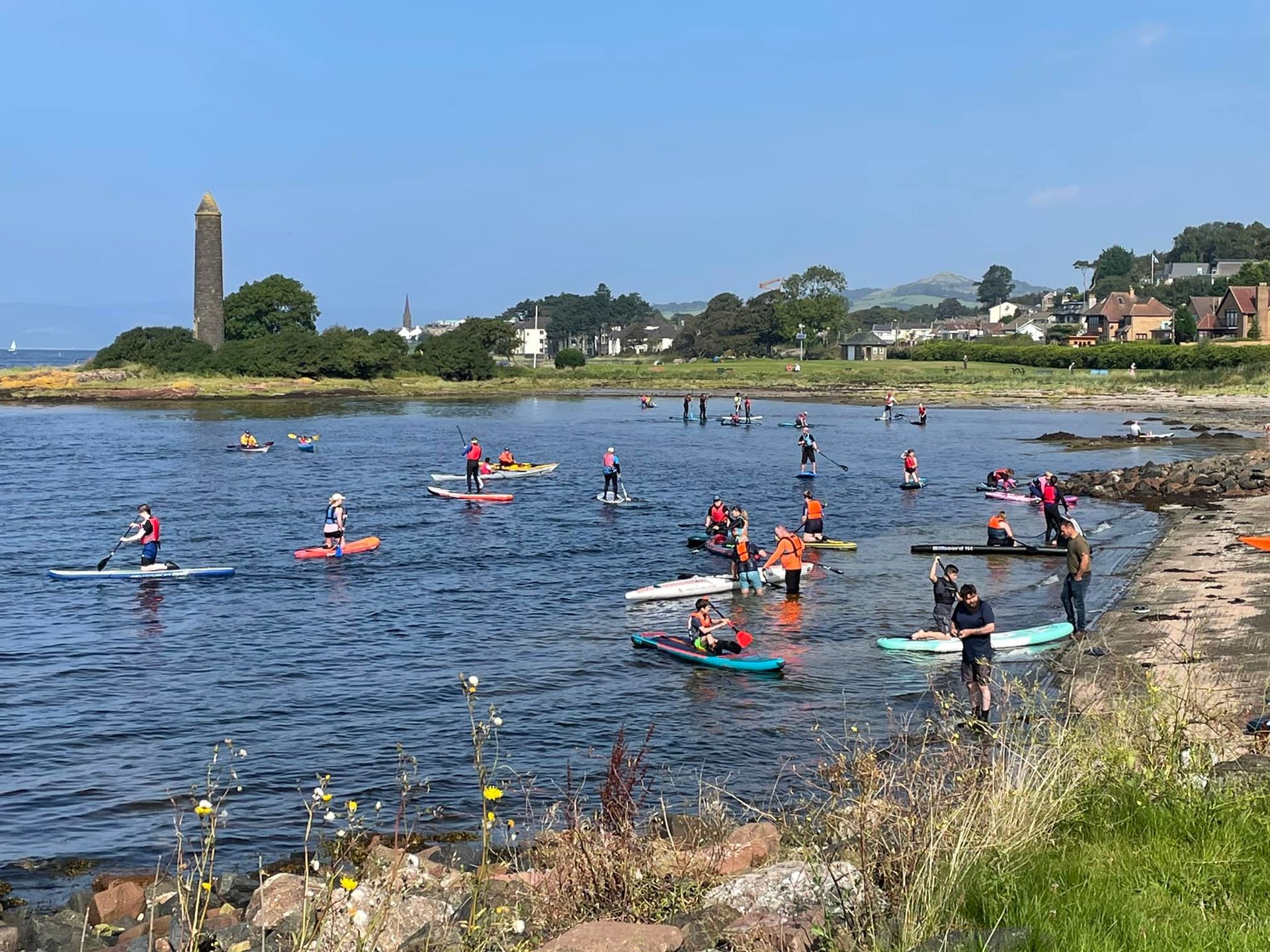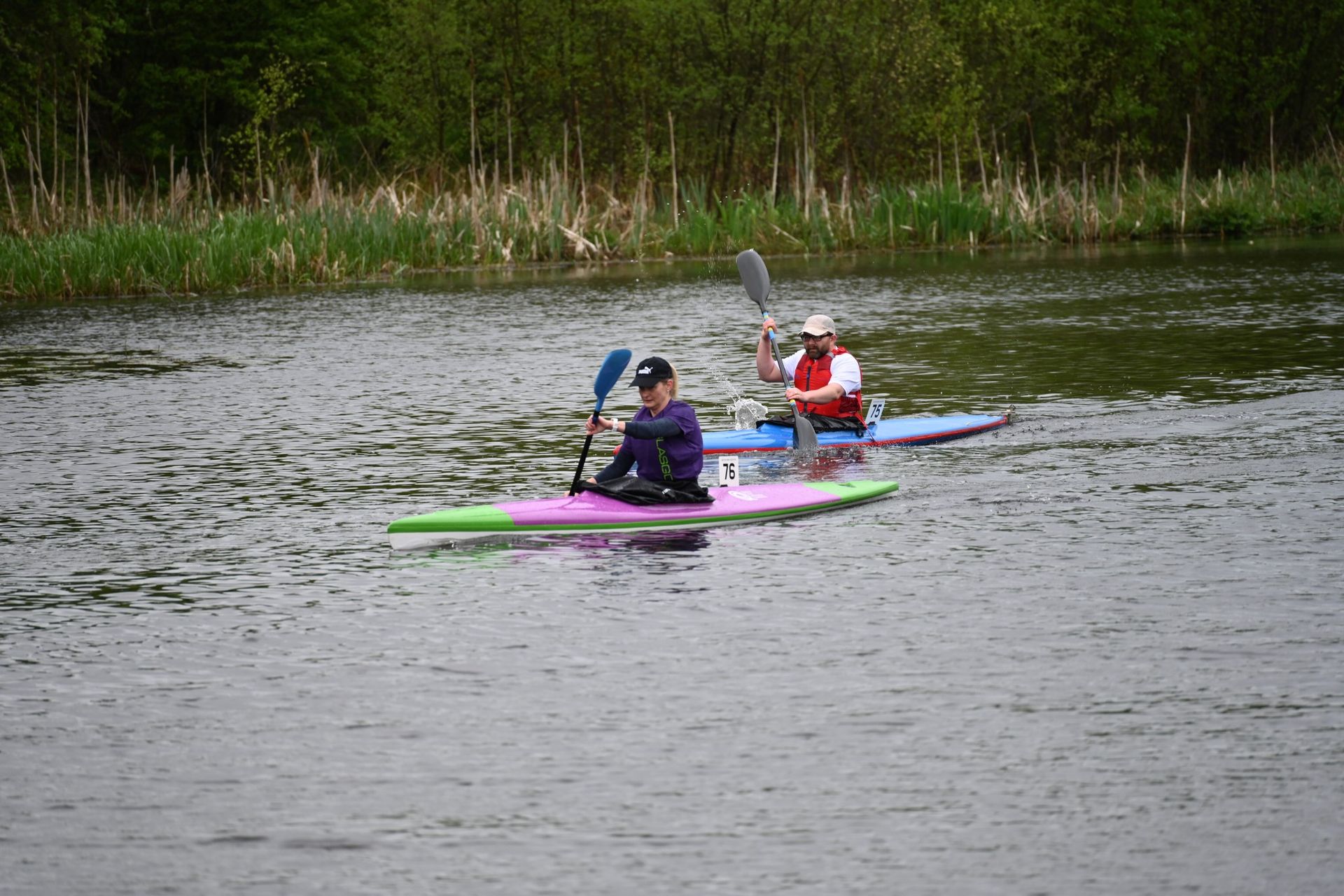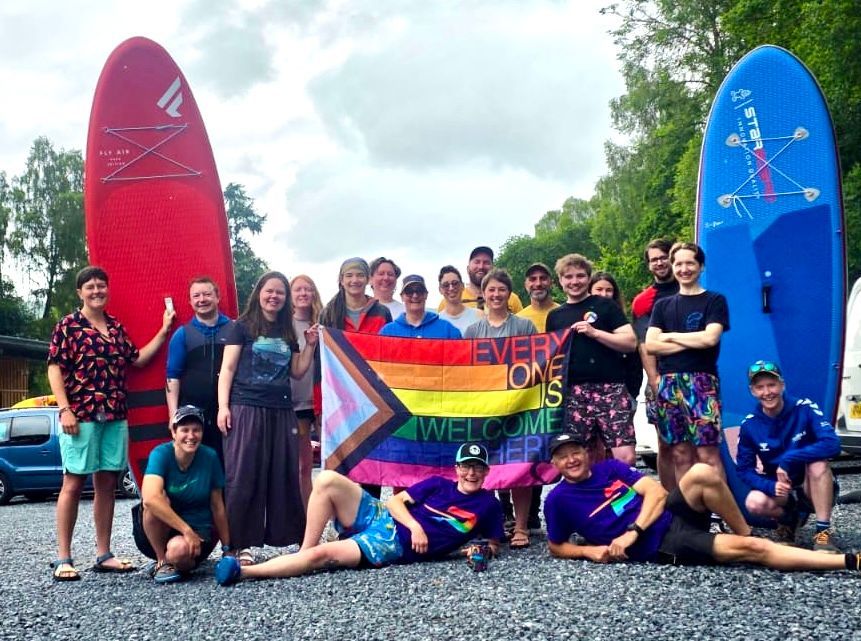Karina Kraweic works in the mental health field and is passionate about combining her love for white water kayaking with the concept of utilising outdoor activities in therapy.
Friend or Foe? Inner Critic on the Water
Karina Kraweic considers the impact of our ‘inner critic’ when we’re on the water. Article first published in the April 2023 edition of Scottish Paddler.
A good friend of mine, who is a very skilled kayaker, “lost” her roll last year. Watching her practice to get the roll back reminded me of all those times on the water when I did not manage to achieve something – whether it was running a rapid, successfully rolling in anger, progressing through the grades, or taking part in a particularly difficult trip. I could recognise that all-familiar inner talk: unpleasant and punitive, as the number of unsuccessful attempts increased.
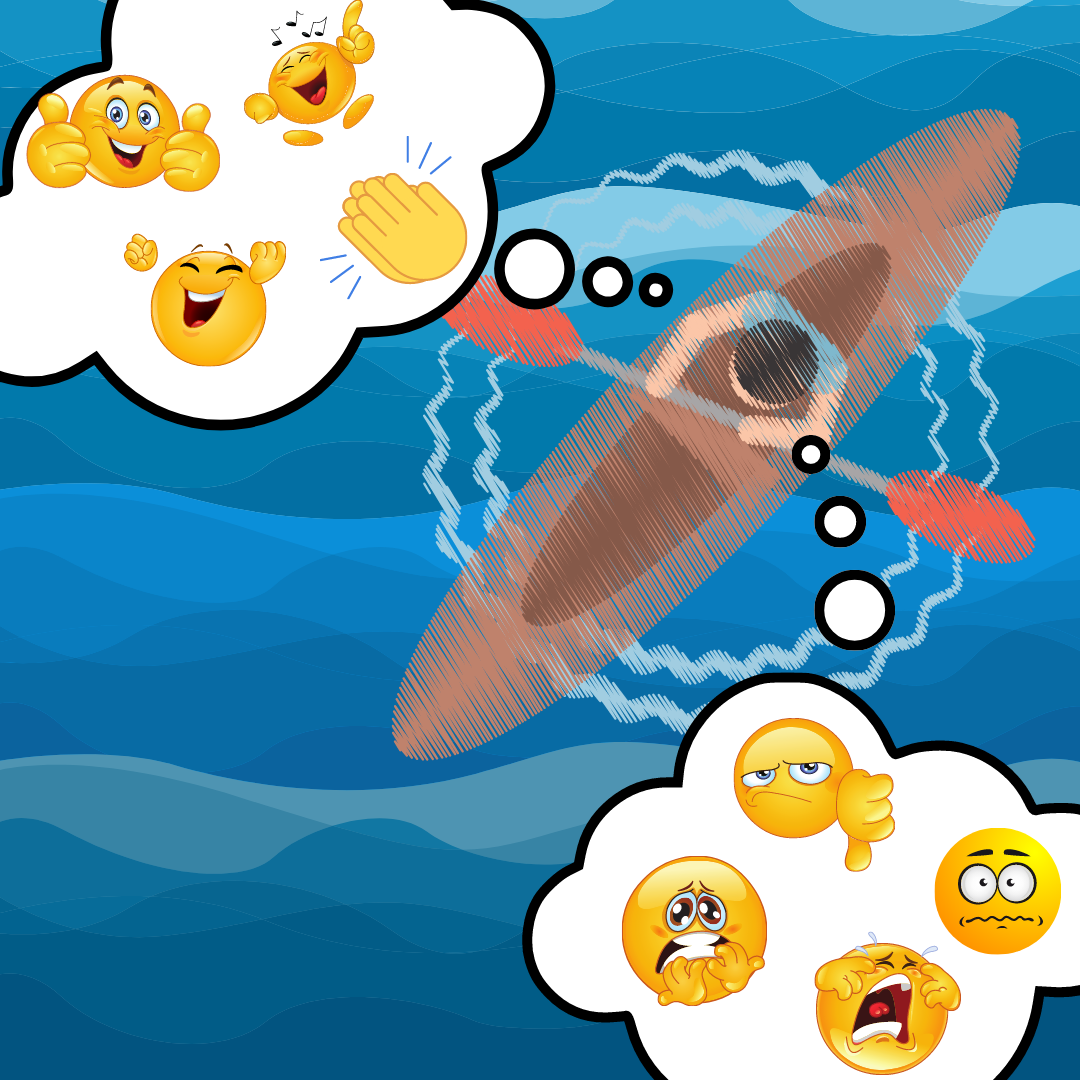
What is an Inner Critic?
We all have one. It forms in early childhood and stems from the feedback we get from our environment as we grow up – parents, peers at school, and the society at large. In what situations it becomes active and what message it carries depends on our experiences. For example, if we experienced bullying at school or our home environment was demanding, critical, rejecting or shaming, our Inner Critic can become quite relentless, harsh, or outright abusive.
As we grow up, we can internalise these voices of the past into our own voice, to the point that we do not even notice how it runs a constant commentary in our heads, filtering everything we do, feel, and think about ourselves. Our Inner Critic is not always ‘bad’; it may have served important functions in the past and often continues to do so in the present, like fuelling our drive to overcome obstacles, improve our performance, and achieve our goals. However, the Inner Critic can also become our Nemesis – paralysing, anxiety-provoking and shame-inducing, sabotaging our actions, and deflating our mood.
Hence, once recognized, it might be useful to identify if that internal voice on the water is our Friend or our Foe.
- A Foe – usually comes from the place of fear: of humiliation, being perceived as less than inadequate, a failure or a fraud. It can present as unforgiving, offensive or sarcastic, guilt-tripping or condescending. It uses a lot of “should” and “have to”; it likes comparing to others, setting unrelenting standards, and is rarely satisfied, at least not for long. If not addressed, it can lead to avoidance, procrastination, and missing opportunities, or worse: making bad decisions and pushing us to take unnecessary risks.
- A Friend – comes from the place of self-compassion: it wants us to be the best we can be, but accepts our limitations, bad days, and our flaws. It uses “could” and accepts “good enough”. It does not compare as we all are different. It recognizes a grain of truth in a self-critical message: yes, maybe we tried to chew more than we could bite, followed the wrong line, did not listen to wise advice etc. However instead of beating us up, it focuses on what we can do better next time. Therefore, it promotes self-development and growth and knows what we need to get there: be it validation, encouragement, a gentle push, reaching out to others - or a time out, a break, some sort of self-care. It shows the ability to maintain a healthy distance and uses humour when commenting on our shortcomings.
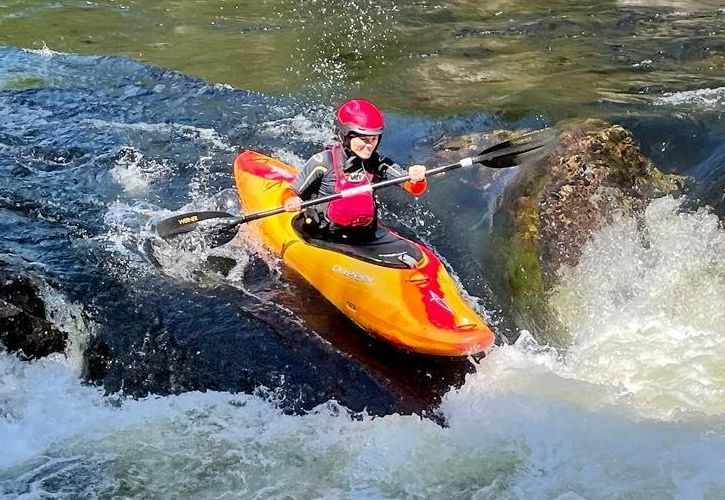
From Inner Critic to Inner Advisor
Our Inner Critic usually proves difficult to be completely eradicated. It is now part of us, and although possibly useful in the past, now it can be counterproductive and unhelpful. There are different ways to deal with our critical voice if it gets in the way of enjoying paddling and being on the water.
- Awareness and separation – realising the presence and origins of our Inner Critic can be a powerful tool. It helps to defuse it and create some distance.
- Imagery – giving Inner Critic a face and a voice, then using our imagination to strip it of its power: for example, by shrinking it, making it look and sound funny or irrelevant.
- Mindfulness – paying attention to our thoughts: are they facts that can be proved by evidence or just our opinions in the moment?
- Negotiation – an internal talk with our critic: can the voice step down, take the back seat, and convert its message to something that helps us improve, rather than makes us feel worthless?
- Active fostering of self-compassion – giving ourselves constant praise and rewards, creating a self-talk that we would give to our best friend in a similar situation.
I leave you with this: an old Cherokee tells his grandson about the battle of two wolves inside him. One is envy, resentment, inferiority, and ego, and the other one is kindness, empathy, and compassion. When the grandson asks which wolf will win, the old Cherokee’s reply is: “the one you feed”.

